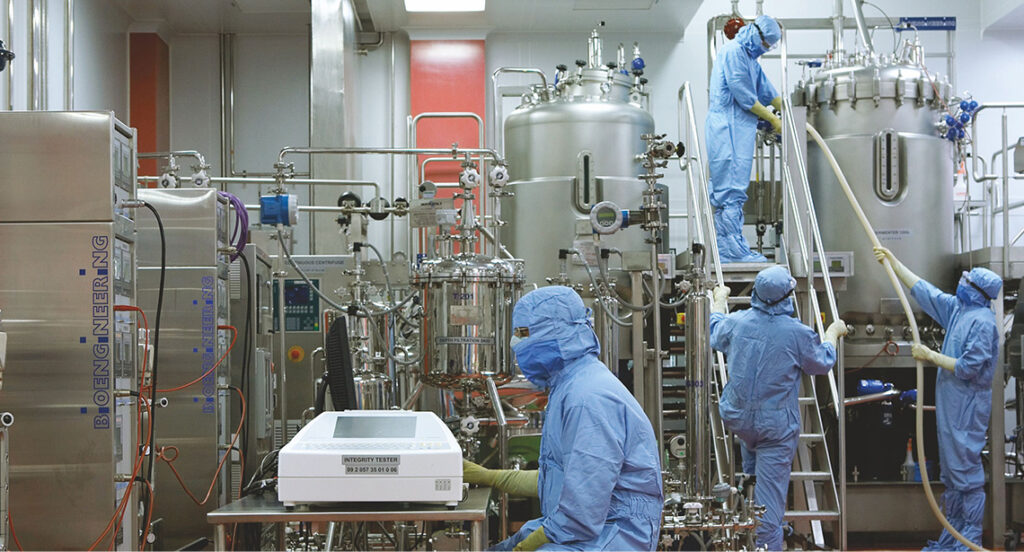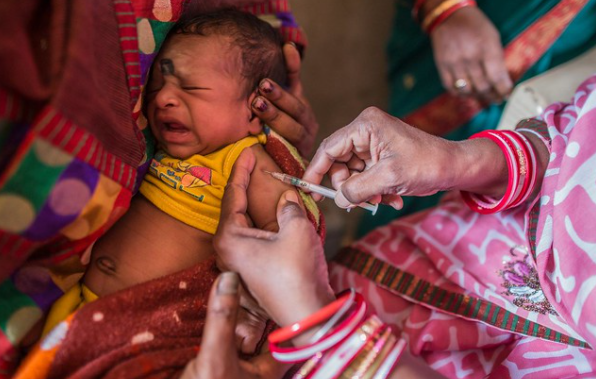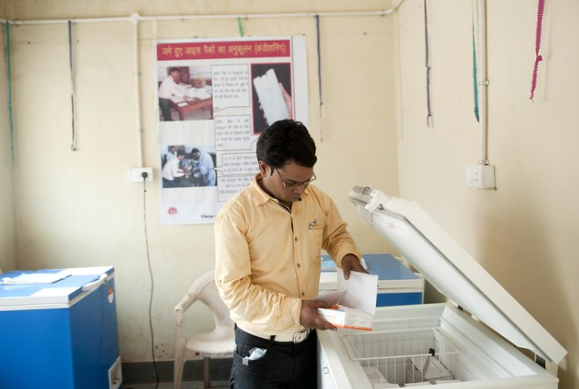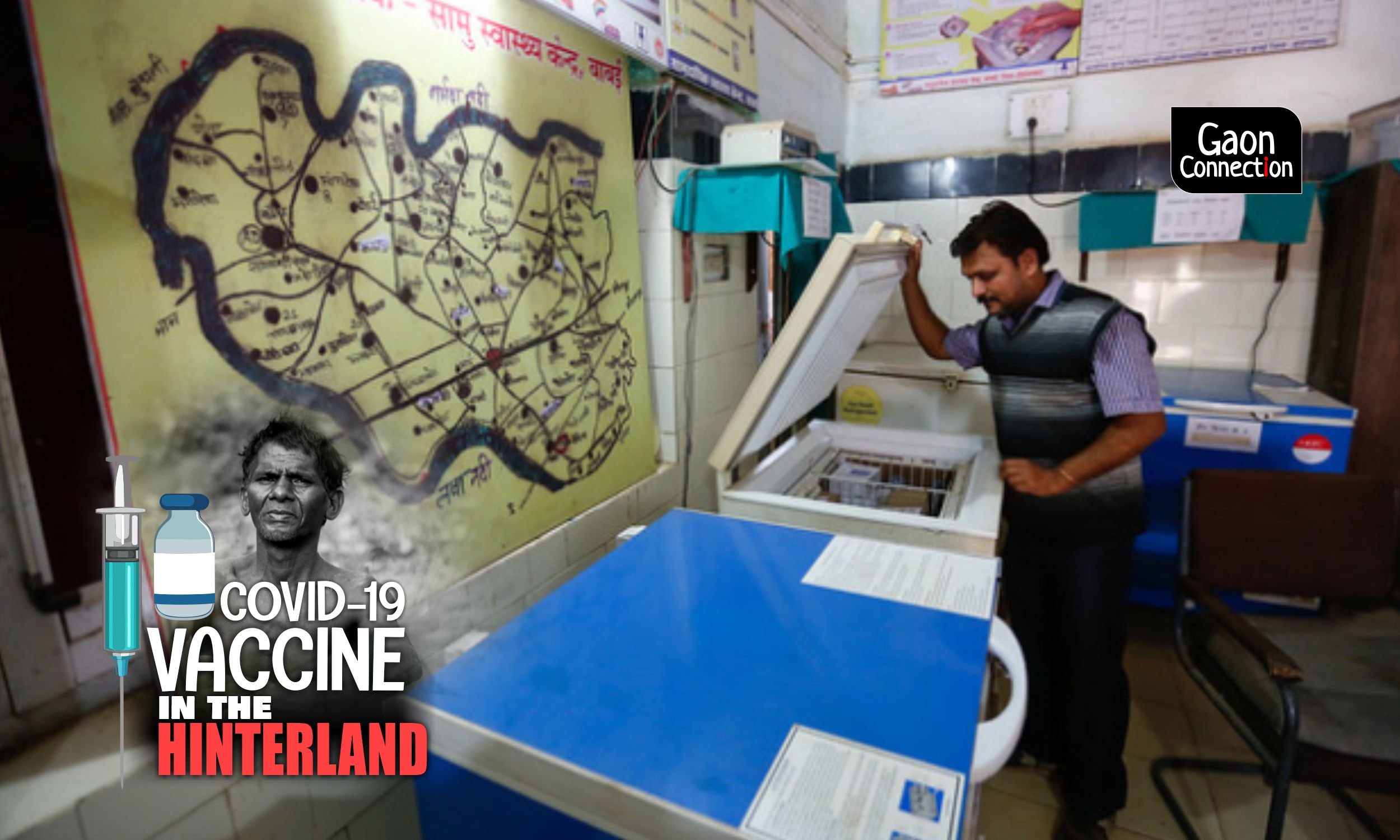The Serum Institute of India has applied to the Drugs Controller General Of India seeking emergency use authorisation for its Oxford COVID-19 vaccine. Pharmaceutical giant Pfizer’s Indian arm has also sought similar clearance for its vaccine in the country. It already has received clearance for this in the United Kingdom and Bahrain.
At a time when it looks like the vaccine is not very far away, Uttar Pradesh, the largest state in the country with 230 million people, is working to ramp up its cold storage facilities. State health minister Jai Pratap Singh told Gaon Connection, “Our goal is to boost the existing cold storage system in all 75 districts. We have allocated a budget for this purpose to all districts, and by December 15, we will have a robust cold storage chain facility throughout the state.”

As per the Indian government’s COVID-19 vaccine strategy, about 30 million frontline healthcare workers will be vaccinated on priority, as they face maximum risk. “At present, all frontline workers need to be vaccinated, and there are 750,000 such employees in Uttar Pradesh,” the minister said.
Vaccines, whenever they are released, are required to be stored within a specific temperature range. Cold storage chains ensure vaccines are transported in the same temperature range. In Uttar Pradesh, new cases continue to crop up on a daily basis (As on December 7, the state has 22,160 active cases).
Every year, about 157 million beneficiaries — including 27 million newborns and 100 million children — are vaccinated in India under the universal immunisation programme. With the outbreak of the pandemic, vaccination will have to be undertaken on an even larger scale — Union health minister Harsh Vardhan has said that India would get a COVID-19 vaccine within the first quarter of 2021 and about 250-300 million people, including frontline workers, would be vaccinated by September 2021. This calls for a more robust cold storage chain system.

According to a report in Hindustan Times, Uttar Pradesh has a vaccine-holding capacity of 87,801 litres under its regular vaccination programme. An additional capacity of 80,733 litres is being developed for the COVID-19 vaccine. The state government is aiming to develop a total cold chain storage capacity of 203,938 litres, including the existing capacity, to store the vaccine between minus two and minus eight degrees Celsius.
Virendra Singh, joint director at the directorate of family welfare, Uttar Pradesh, said at present, the state has an adequate cold chain system in many districts to store the vaccine. “In addition, vaccine depots are being developed in 22 districts of the state. Work is ongoing to repair existing cold storage facilities in some districts too.”
A vaccine depot is a place where vaccines are stored in deep freezers. The Uttar Pradesh government has collaborated with UNICEF for construction of these vaccine depots and evaluation of the existing cold storage chain.

Praful Bhardwaj, health officer, UNICEF-UP, who is handling cold storage assessment in Uttar Pradesh, told Gaon Connection, “Cold chain is, in fact, the most important aspect of any vaccination programme and the rationale behind this whole exercise is that the coronavirus vaccine is safely transported and made available to beneficiaries.”
He accepted that looking at the sheer population of the state, it would be challenging to deliver the vaccine at the required temperature at every level. “But, we have got the budget for construction of vaccine depots in 22 districts, and work is on. Our endeavour is to not allow even a single dose of the vaccine to be wasted.”
The storage follows many levels — block, district, divisional and regional levels. Finally, there is the provision of cold storage at CHCs-PHCs (community and primary health centres) for access to the vaccine at the rural level, officials said.
“It is expected that the state would receive 40 million vaccine doses in the first consignment,” Bhardwaj said. “If the vaccine is available only by next year, summer would have already set in, and we are keeping that in mind while developing the cold storage chain,” he added.
Gaon Connection spoke to K Suresh Kishanrao, public health specialist who has worked on several vaccines in India and who has also been associated with the Government of India’s universal immunisation programme for nearly 50 years. He said that considering the state’s population, delivery of the vaccine at the village level, “cannot be achieved solely with the efforts of ASHA [Accredited Social Health Activist] workers and ANMs [Auxiliary Nurse Midwife]. We will need to train other youths for this programme as well”.
“The Uttar Pradesh government’s move is commendable, but for the vaccine to be made available at the rural level, it is imperative that the cold storage chain is strengthened. However, after health workers and frontline workers, it may take long for the vaccine to be available to the common citizens as, for the first time, the vaccine is not just for children or women, but also for youth with Corona and the elderly,” Kishanrao told Gaon Connection.
Also Read the first part of the series COVID19 Vaccine in the hinterland here.
Also read: Rural India has just one question about the COVID-19 vaccine — “Will it be free for us?”


















